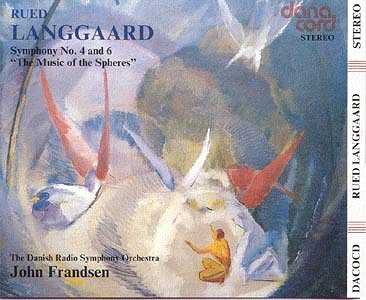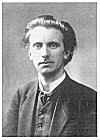

Rued Langgaard (1893-1952) is a true original, an important Danish composer
who is, to our shame, scarcely known in UK. Re-appraisal of his work started
in 1960 and he remains a controversial figure. His fate has been likened
to those of Charles Ives and Havergal Brian, who only gradually achieved
recognition.
Eccentric, and isolated from the musical establishment of his time, Langgaard
was a cathedral organist who tried to express in his compositions religious
extremes in human existence. Do not be put off by that. These three major
early works are dramatic, accessible and refreshingly unpredictable. His
first symphony had been performed in Berlin in 1913 when he was 20. Most
of the 16 are in single movements, the two here substantial works for large
orchestra each lasting under half an hour.
No 4 is by turns restless and romantic, with sections headed rustle of
the forest - ray of sunshine -thunder - despair - Sunday morning bells etc.
No. 6 is cast as a theme with five variations, in which he exploits its potential
to express 'cosmic conflict'. The motto for The Music of the Spheres is "the
stars may seem to twinkle kindly, but their message is cold and merciless".
A choir repeats Kyrie eleison rapidly, there are passages for a second
distant orchestra (conducted by Peter Weiss) and a solo soprano (Edith Guillaume)
sings "The gospel of the flowers".
Riveting music, with surprises round every corner. Excellent digital transfers
of live performances from 1977-1981 by the orchestra which introduced us
to Nielsen not so many decades ago. A great discovery from Discovery!
Reviewer
Peter Grahame Woolf

